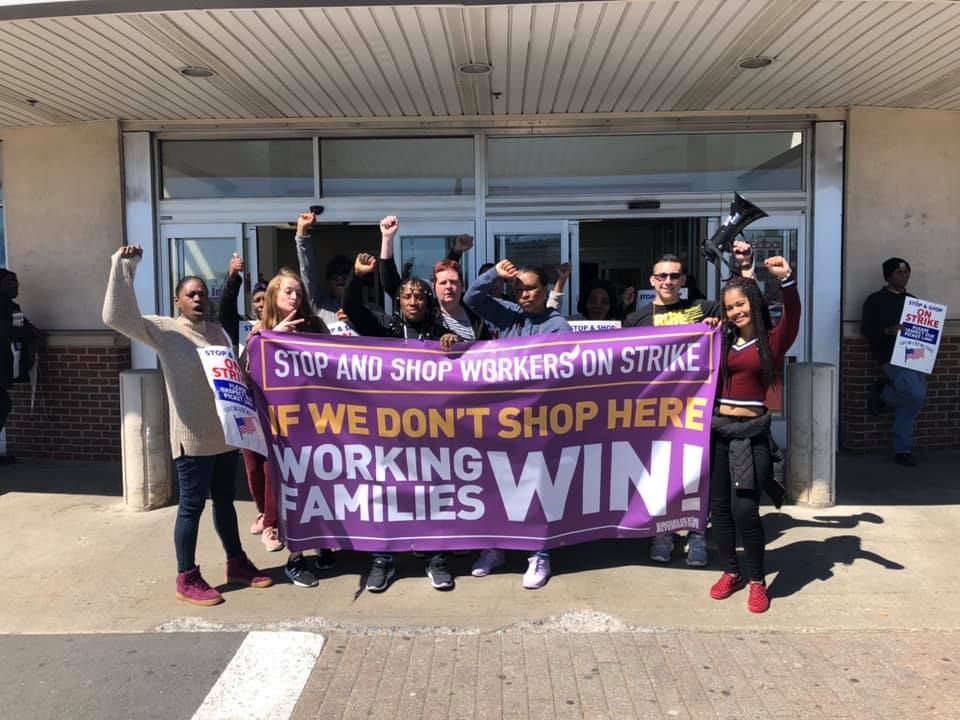Elin Miller is a member of Socialist Alternative in the US.
Libertarian far-right “outsider” Javier Milei, of the rightwing coalition La Libertad Avanza, has been elected president of Argentina. He defeated Sergio Massa of the “center-left” coalition Unión por la Patria by a 56% to 44% margin. This is a decisive defeat for the populist Peronist political forces that have dominated Argentinian politics for many decades. It’s perhaps an even bigger defeat for Argentina’s traditional right wing, who won only about 24% of the vote in the first round (half of what they received in the 2019 election), and did not proceed to the second round.
Milei is a virulently right-wing politician running on an anti-worker, anti-feminist, anti-LGBTQ agenda. His policies and rhetoric represent a break from the traditional center, left, and right, much like Trump in the US, and have thrown the political status quo into turmoil.
Milei’s victory is a major threat to ordinary Argentinians. His stated plans to close the central bank, abolish the peso, adopt the US dollar as the national currency, and institute a vicious austerity budget that involves slashing social services won’t solve crushing inflation, running at over 140% per year, nor massive indebtedness to foreign capital. Instead, it will take resources away from those who are struggling most, particularly the elderly and those who utilize public transit. It is very possible that his “shock therapy” will lead to economic collapse rather than the promised economic renewal.
Milei wants to align Argentina more closely with US imperialism in the New Cold War with Chinese imperialism and clearly hopes Trump will soon be back in power. He is opposed to the attempts of the defeated government to position itself towards a “multipolar” world, for example by joining the BRICS bloc. Nevertheless, like all Latin American countries, Argentina has closer links with China than in the past and China is its second biggest export market.
His climate change denial ensures that environmental degradation and disaster will escalate and ultimately be paid for by working people. His anti-abortion stance in alliance with the Catholic Church represents an existential threat to the gains of the Green Tide feminist movement, which swept Argentina in the late 2010s and 2020, and his victory will give the far right a mandate to attack those gains further.
A Milei presidency will undoubtedly only compound the misery that ordinary Argentinians are facing. What’s more, it will open the door for a more organized far right to grow, and if left unchallenged will embolden bigger, louder, and more violent expressions of right-wing ideas, threatening basic democratic rights. His victory will also embolden the far right internationally. But his attacks can also provoke massive social struggle, leading to a more decisive working-class challenge to Argentinian capitalism, hopelessly dependent on imperialism.
What Happened?
Milei’s politics clearly don’t reflect the real needs of society. Many both in Argentina and internationally are asking how Milei – known as a scruffy, eccentric upstart who once called Pope Francis a “filthy leftist” – has become the president by a margin of more than 10%.
Milei’s opponent, Sergio Massa, actually did better in the first round of the general election than most expected – coming in first, six points ahead of Milei – considering he’s presided over a severe, triple-digit inflationary crisis and looming recession as the Minister of the Economy since 2022. His “upset” lead was no doubt partially a result of broad disgust with Milei’s politics. But since then, the Argentinian economy has seen more strain, with a petroleum and diesel shortage, and Milei gained the endorsement of two important traditional conservatives: Patricia Bullrich, the third-place presidential candidate in the first round, and Mauricio Macri, Argentina’s President from 2015 to 2019.
Notably, the Juntos por el Cambio coalition, with which both Macri and Bullrich affiliate, has been badly damaged over this decision and split in the second round over the question of whether to back Milei, Massa, or neither. Like the Republican Party’s intensifying chaos and division in the face of Trumpism in the US, the Argentinian center and center-right have suffered perhaps the most dramatically from the broad loss of faith in capitalist institutions that has lifted Milei into power in Argentina, and is changing the political landscape across the globe.
Milei used this landscape to his advantage, for the most part leaning into polarization rather than shying away from it. However, the tone of his campaign also shifted after the primaries in an effort to appear less extreme and appeal to more moderate voters, calling the election a referendum on “whether or not we want to stay on the path we’re on.” But while Milei might not have brought his signature chainsaw to his later rallies, his plans to hack away at social spending, environmental regulations, and living standards for ordinary Argentinians have remained completely intact.
“The path we’re on” – which Milei alleges is “more populism, more inflation, more corruption and more privileges for [Massa’s] friends” – is, of course, deeply unappealing to ordinary Argentinians. And despite its cynicism and dishonesty, his rhetoric does contain a grain of truth: the acknowledgment that the current state of things is not tenable for working people.
Lesser Evilism Props Up More Evil
But Massa’s defeat didn’t have to mean support for Milei’s reactionary politics. Many working-class voters are simply confused by faux-populist rhetoric, and feel like they don’t have a real choice. What’s clear is that an alternative is desperately needed, and Milei’s aim – like that of Trump in the US and right-wing “populist” figures across the globe – is to swindle voters into believing he’s going to provide exactly that.
The reason he’s succeeded to the degree that he has primarily comes from the fact that Massa and the Peronist establishment don’t have any real answers to the crises at hand. Massa leaned heavily into lesser evilism and the idea of protecting existing social welfare from Milei’s chainsaw, but that appeal fell on a lot of deaf ears, especially among young voters who see no hope for a future within the Peronist establishment. Milei appealed to young people, young men in particular, in part by waging a successful TikTok campaign that helped galvanize support among voters under 29, who in the run up to the first round were polling for Milei at nearly 50%, and he has consistently led polls of voters aged 16-35. In many ways, these voters actually saw Milei as the lesser evil compared to the establishment, not the other way around.
Massa’s use of lesser evilism, in the end, failed to resonate with Argentinians who have experienced the betrayals of Peronist politics firsthand. Peronism has generally dominated Argentinian politics for over 75 years, with the notable exception of military rule from 1976 to 1983, and has historically encompassed a wide range of sometimes contradictory political ideas, but in the past decade has decisively represented the politics of austerity. With a philosophy of not increasing or acquiring new debt or deficits and accumulating reserves in the central bank, Peronist policies have translated into protecting profits for the ruling class and gutting the social safety net for the rest. Yet it’s also the Peronist politicians who have turned to the IMF to obtain and re-service loans at a devastating cost to the working class, bringing in massive spending cuts and privatization, and showing their own inability to solve the fundamental crises of the capitalist system.
It’s under the banner of Peronism that Argentina’s economy has lurched from crisis to crisis, and now Massa, who himself is known as the minister of austerity, follows the trend of Peronists losing elections on the basis of economic woes. This time, though, instead of another Peronist filling the space the previous one left, the far right has seized on their weaknesses decisively. But Milei’s program of even more vicious austerity and dollarization don’t represent a real alternative, even though they’re a break from Peronist tradition. While undoubtedly more brutal and far more reactionary, they ultimately represent the same capitalist interests that got Argentina into this crisis to begin with.
Where’s The Left?
Milei’s election has demonstrated again that lesser evilism is a losing game for anyone who wants to actually combat the evils of capitalism and the danger of the right and the far right. But unfortunately that hasn’t been reflected in the strategy of much of the electoral left in Argentina. The Unión por la Patria coalition that backed Massa, in addition to being a home for Peronist politicians, includes a slew of reformist social democratic parties, as well as various so-called “communist” parties. The buy-in of these left parties to lesser-evilism has allied them with a clearly pro-capitalist, anti-worker presidential candidate. By associating themselves with him and the establishment parties in the coalition, these sections of the left are assuming responsibility for the crisis that Argentinians are facing, and are now also complicit in opening the road to the far right.
If the left wants to defeat the right and win real gains for working people, there can be no joining up with the capitalists’ representatives. Instead, they must form a political force based on the interests of the working class and oppressed, independent of big business, on a program of demands that answer the needs of the day and point to the decaying capitalist system as the source of everyday misery. This is what can answer Milei’s lies and provide the genuine alternative that people want and need.
Standing against the current is the FIT-U (Workers Left Front – Unity) coalition, centered on four small Trotskyist parties. They correctly refused to bend to lesser evilist pressure and ran all the way through the general election with a presidential candidate of their own, the only one of the five putting forward a genuine anti-capitalist, pro-worker, anti-imperialist program. But that in itself has proven insufficient, with the FIT-U experiencing not gains but setbacks in this election cycle. While some of this is no doubt due to the pressures of lesser evilism, it should be a warning to the FIT-U that they are not seen as a viable option that can deliver what working people need. The FIT-U has the critical task of becoming more than just an electoral engine – of becoming a genuine organizing home for the working class, youth, and oppressed – in order to win more than 3.31% of the vote and present a real threat to the establishment and a real alternative to the right.
Struggle For a Real Alternative!
The fight against Milei’s reactionary agenda and the right cannot be confined to the halls of power, where the establishment and anyone tied to them will oppose Milei only to the extent that it protects their own system. The fight to defeat both Milei’s reactionary administration and the political establishment’s pro-capitalist policies has to take place in the streets and in the workplaces. We call for mass protests against austerity; protests against attacks on abortion rights, LGBTQ rights, and other forms of oppression; and a mass movement to marginalize and silence the far right. This must build up to mass strike action to oppose and defeat reactionary attacks.
Such a movement will need a genuine left leadership in the form of a new party that fights in the streets, in the workplaces, in the schools and colleges, in working class communities and in electoral politics to organize the entire working class. Building such a party must also be linked to building a fighting labor movement that is prepared to wage a ferocious struggle. This task will necessarily involve building rank and file opposition to the current weak leadership linked to Peronism, and politicizing the role of unions in broader society.
We can look to the experiences of Brazil, France and the US to see that no matter which capitalist politician is leading the country, nothing will be given to workers without a fight. What’s needed is a genuine alternative on the basis of the working class and oppressed fighting the right, and ultimately aiming to overthrow the whole capitalist system that produced both Massa and Milei, and the crises facing Argentinians.




